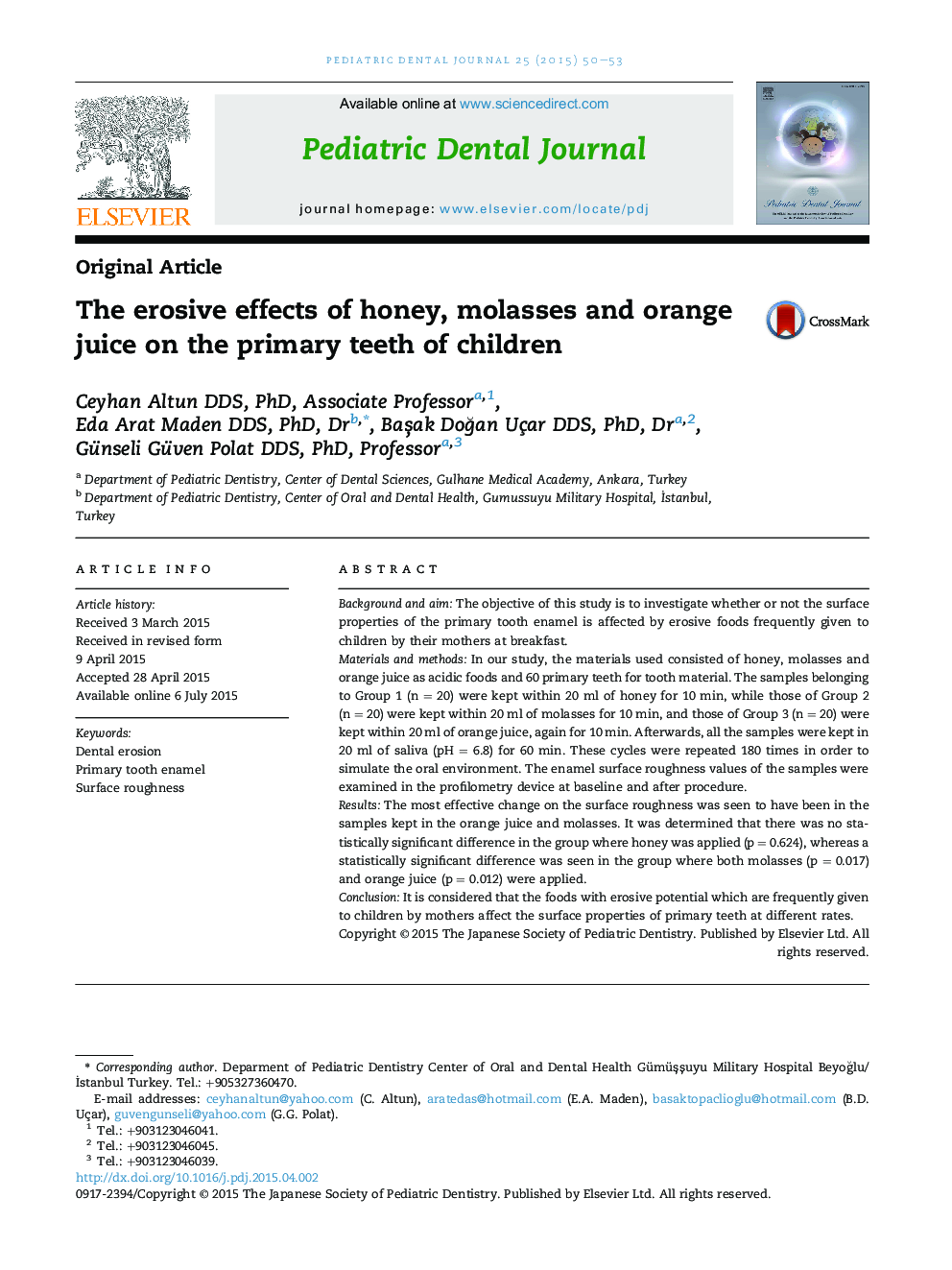| Article ID | Journal | Published Year | Pages | File Type |
|---|---|---|---|---|
| 3171548 | Pediatric Dental Journal | 2015 | 4 Pages |
Background and aimThe objective of this study is to investigate whether or not the surface properties of the primary tooth enamel is affected by erosive foods frequently given to children by their mothers at breakfast.Materials and methodsIn our study, the materials used consisted of honey, molasses and orange juice as acidic foods and 60 primary teeth for tooth material. The samples belonging to Group 1 (n = 20) were kept within 20 ml of honey for 10 min, while those of Group 2 (n = 20) were kept within 20 ml of molasses for 10 min, and those of Group 3 (n = 20) were kept within 20 ml of orange juice, again for 10 min. Afterwards, all the samples were kept in 20 ml of saliva (pH = 6.8) for 60 min. These cycles were repeated 180 times in order to simulate the oral environment. The enamel surface roughness values of the samples were examined in the profilometry device at baseline and after procedure.ResultsThe most effective change on the surface roughness was seen to have been in the samples kept in the orange juice and molasses. It was determined that there was no statistically significant difference in the group where honey was applied (p = 0.624), whereas a statistically significant difference was seen in the group where both molasses (p = 0.017) and orange juice (p = 0.012) were applied.ConclusionIt is considered that the foods with erosive potential which are frequently given to children by mothers affect the surface properties of primary teeth at different rates.
